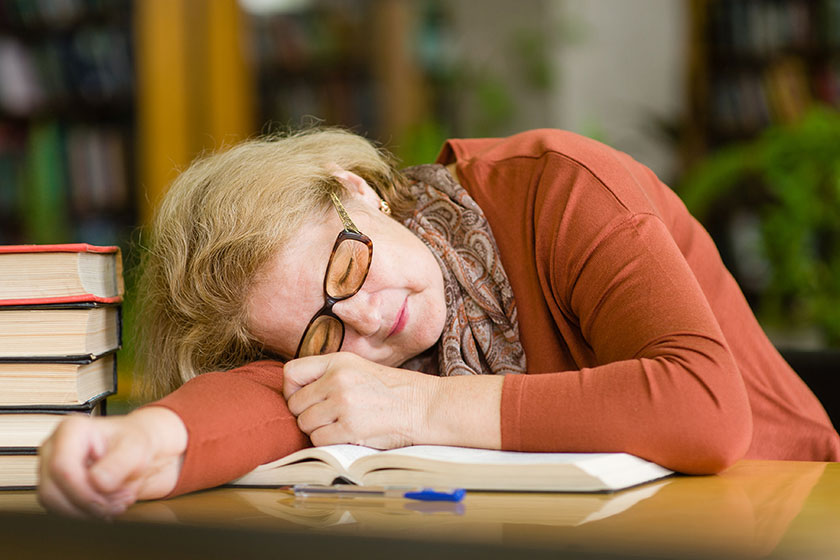As you get older, it’s normal to experience changes in your sleep patterns. As we age, our circadian rhythms tend to slow down, so even if you go to bed at the same time each night, you may find yourself waking up later and later in the morning, making it more difficult to get up and go. Age-related changes in hormones can also cause problems with insomnia in older adults and make it harder to fall asleep, while some medications can cause drowsiness that affects the quality of sleep. Unfortunately, these changes lead to multiple side effects that negatively impact our health and well-being. Read on to learn more about aging and sleep and how they’re connected.
How Does Aging Affect Sleep?
Aging is often accompanied by a shifting sleep schedule. Our bodies become less able to fall asleep at night and are more likely to wake up early in the morning. People also tend to get light sleepier earlier in life, so it’s very common for older people to feel like they need an afternoon nap or are ready for bed well before their younger counterparts.
Shifting Sleep Schedule
If you’re middle-aged or older, your sleep schedule is probably set. You might not feel tired until 11 p.m., so it’s perfectly normal to stay up late and sleep in past noon on weekends. However, older adults are more likely to have disrupted sleep cycles or even insomnia—meaning they fall asleep but then wake up repeatedly throughout the night. This could be due to a shift in circadian rhythm that tends to happen as we age. Since shifts like these can lead to all sorts of problems—like depression and other mood disorders—having trouble sleeping is one sign of aging you shouldn’t ignore.
Waking Up at Night
The release of melatonin, a chemical that helps you feel tired and relaxed, is triggered by darkness. When it’s light out, your brain doesn’t trigger its release. That means if you wake up in darkness—say at 3 a.m. to go to use the bathroom—your body thinks it’s not time for bed yet. This can lead to even more nighttime awakenings because you aren’t getting enough REM sleep (the stage where most dreaming occurs). Studies show that 20 percent of people over 50 wake up multiple times a night. It might be time to talk with your doctor about taking melatonin supplements to help you get back on track!
Daytime Napping
The changes that come with aging — from diminished hearing and eyesight to slower reflexes, as well as reduced energy and stamina — can make it difficult for older adults to get a good night’s sleep. Getting enough restful sleep is important for everyone. But sleep difficulties become especially important in an older person’s life because of their impact on daytime alertness, quality of life, and risk of falls or other accidents. It may be tempting to take a quick fix by taking naps during the day — but if your nap turns into an extended one or you are struggling to fall asleep at night, there could be a larger problem affecting your ability to sleep at all.
Inability to Adjust to Changes in Sleep Schedules
As we age, it takes longer for our bodies to recover from changes in sleep schedule. It’s not uncommon for adults who work non-traditional hours, such as nurses who work overnight shifts, to have trouble sleeping during a regular day/night cycle. Their bodies take longer to recover, and they may continue to have problems falling asleep at night. This can also affect their mood and level of energy. In addition, research shows that older adults are more likely than younger people to experience a delay in entering rapid eye movement (REM) sleep; although no one is sure why exactly, some experts speculate that it could be related to reduced levels of melatonin in seniors.







